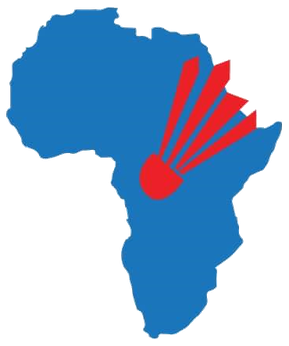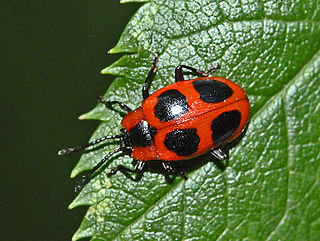
The individual member states of the African Union (AU) coordinate foreign policy through this agency, in addition to conducting their own international relations on a state-by-state basis. The AU represents the interests of African peoples at large in intergovernmental organizations (IGO's); for instance, it is a permanent observer at the United Nations' General Assembly.

The Badminton Confederation Africa (BCA) is the governing body of badminton in Africa. It is one of the 5 continental bodies under the flag of the Badminton World Federation (BWF). It now has 46 member countries and 2 associate members.

The grey penduline tit, also known as the African penduline-tit, is a species of bird in the family Remizidae. It is found in Angola, Botswana, Burundi, Republic of the Congo, Democratic Republic of the Congo, Eswatini, Kenya, Malawi, Mozambique, Namibia, Rwanda, South Africa, Tanzania, Uganda, Zambia, and Zimbabwe. Its natural habitats are subtropical or tropical dry forests, dry savanna, and moist savanna. At 8 to 9 cm in length and a weight of 6.5 g (0.23 oz), it is one of the smallest species of bird found in Africa, along with its cousin the Cape penduline tit and the perhaps smaller mouse-colored penduline tit and the tit hylia.

The climbing shrew is a species of mammal in the family Soricidae, which is found in subtropical Africa. It is found in Angola, Benin, Burundi, Cameroon, Central African Republic, Republic of the Congo, Democratic Republic of the Congo, Ivory Coast, Ethiopia, Ghana, Guinea, Kenya, Liberia, Malawi, Mozambique, Nigeria, Rwanda, Sierra Leone, South Sudan, Tanzania, Togo, Uganda, Zambia, and Zimbabwe. Its natural habitats are subtropical or tropical moist lowland and montane forests, and moist savanna.

Endomychidae, or handsome fungus beetles, is a family of beetles with representatives found in all biogeographic realms. There are around 120 genera and 1300 species. The family was established based on the type genus Endomychus, a genus erected in 1795 by Panzer which was applied to a species that Linnaeus called Chrysomela coccinea. As the common name suggests, Endomychidae feed on fungi. Crowson, in his influential treatment of the beetles, placed the family within the Cucujoidea. They have a tarsal formal of 4-4-4 or 3-3-3 and the wings lack a closed radial cell. The second antennal segment has a sensory appendage that is as long as the third antennal segment. The family has also been grouped with the Coccinellidae in a group called the Trimera for having pseudotrimerous tarsi. A 2015 molecular phylogeny study found that the Cucujoidea were found to be non-monophyletic and the Endomychidae was refined with the removal of the Anamorphinae from within the family and elevated to the status of a full family, Anamorphidae. Mycetaeinae and Eupsilobiinae were also found not to belong within the clades of the core Endomychidae, and likewise reclassified into the families Mycetaeidae and Eupsilobiidae.

Tourism is an important economic sector for many countries in Africa. There are many countries that benefit heavily from tourism like Uganda, Algeria, Egypt, South Africa, Kenya, Morocco, Tunisia, Ghana and Tanzania. The touristic particularity of Africa lies in the wide variety of points of interest, diversity and multitudes of landscapes as well as the rich cultural heritage. Also, an ecotourist industry is present in some African countries.
Neobatenus is a genus of ground beetles in the family Carabidae. There are about 17 described species in Neobatenus, found in Africa.

Salamis cacta, the lilac mother-of-pearl or lilac beauty, is a butterfly in the family Nymphalidae. It is found in Senegal, Guinea, Sierra Leone, Liberia, Ivory Coast, Ghana, Togo, Benin, Nigeria, Cameroon, Equatorial Guinea, Gabon, the Republic of Congo, the Central African Republic, Angola, the Democratic Republic of Congo, Uganda, Rwanda, Ethiopia, Kenya, Tanzania, Malawi, Mozambique and Zimbabwe. The habitat consists of forests, including disturbed forest habitats.

Englerophytum is a group of trees in the family Sapotaceae described as a genus in 1914.

This is a list of the Egypt national football team results from 2000 to 2019.

Eumorphus is a genus of beetles belonging to the family Endomychidae.

Endomychus is a genus of beetles in the family Endomychidae.
This is a list of the Zimbabwe national football team results from 2000 to 2019.
Afrohercostomus is a genus of flies in the family Dolichopodidae. Many of the species were formerly from "Hercostomus Group I", one of three groups of Afrotropical Hercostomus species created by Igor Grichanov in 1999.
Mystaria is a genus of African crab spiders first described by Eugène Simon in 1895.

This is a list of the Angola national football team results from 2000 to 2019.

This article provides details of international football games played by the Zaire national football team from 1971 to 1997, when the Democratic Republic of the Congo was named Zaire.
The following are the matches played by the Tanzania national football team since its debut in 1945.













